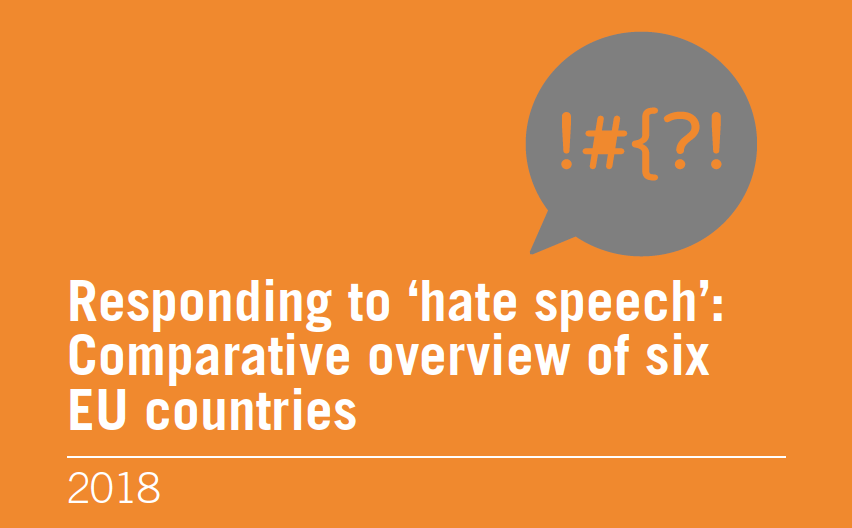‘Hate speech’ is not a new problem within the European Union; however, it is of growing concern. Over the past two decades, ‘hate speech’ incidents, motivated on various grounds, have increased in many European countries. This is often accompanied by an increase in the number of hate crimes being recorded.
This trend appears to have been driven by the long-standing global economic crisis, and an increase in migrants and refugees arriving in Europe. A tense political discourse surrounding the role of the EU in responding to this, and ‘Eurosceptic’ rhetoric has also played a role.
‘Hate speech’ is reflected in the media, online and in political discourse, including sometimes in statements made by politicians and public officials. In many cases, the rise in prejudice and intolerance can be directly linked to a government’s own policies and communication strategies.
This research was carried out as part of “Media Against Hate”, a Europe-wide campaign initiated by the European Federation of Journalists and a coalition of civil society organisations.
(Published on 2018-03-04)

